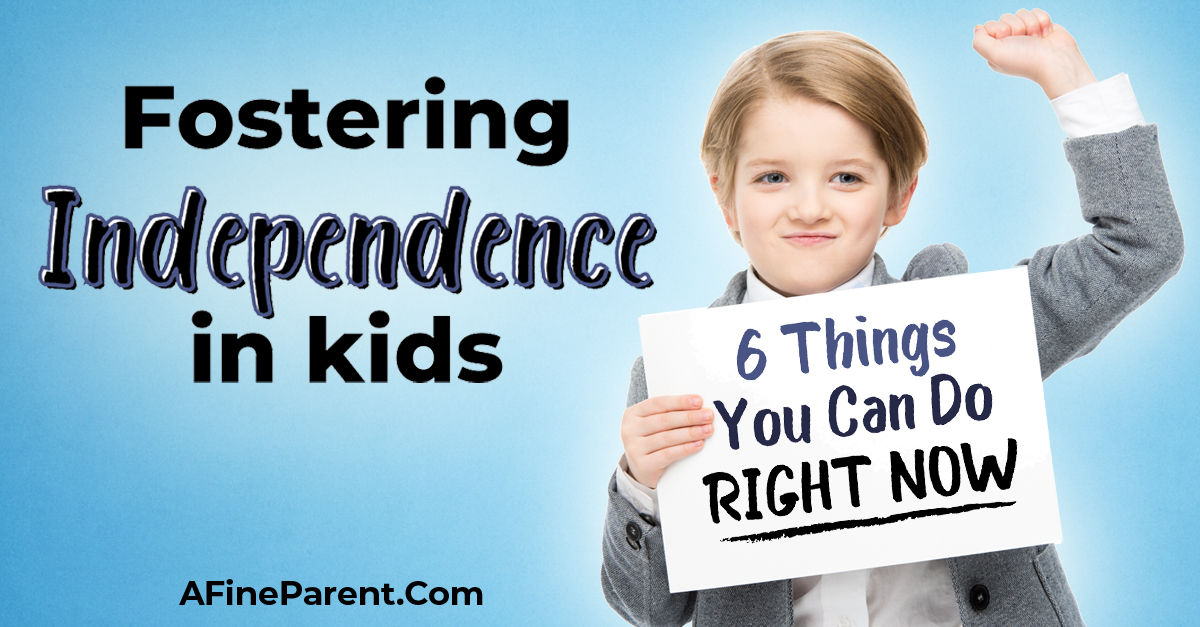Picture this: a child confidently tying their own shoelaces, pouring their own cereal, and proudly completing their homework without constant supervision. These are just a few examples of the benefits that come with fostering independence in children. When kids are given the opportunity to develop their self-reliance and problem-solving skills, they not only gain a sense of accomplishment but also set themselves up for success in the long run. In this article, we will explore the various advantages of nurturing independence in children and how it positively impacts their growth and development.
One of the key benefits of fostering independence in children is the boost it gives to their self-esteem. When kids are allowed to take on age-appropriate responsibilities and tasks, they develop a sense of competence and confidence in their abilities. They learn that they are capable of completing tasks on their own, which in turn, enhances their self-worth. Additionally, independence helps children develop resilience and adaptability, as they learn to navigate challenges and problem-solve without constant assistance. By encouraging independence, parents and caregivers empower children to believe in themselves and their capabilities, setting them up for a lifetime of success. So, let’s dive deeper into the advantages of fostering independence in children and discover how it positively impacts their overall development.
Fostering independence in children has numerous benefits. Firstly, it helps develop their problem-solving skills as they learn to tackle challenges on their own. Independence also boosts their self-confidence and self-esteem, as they gain a sense of accomplishment from achieving tasks independently. It encourages creativity and critical thinking, as children are free to explore and discover new ideas. Moreover, fostering independence prepares children for adulthood by teaching them responsibility and decision-making skills. Overall, encouraging independence in children is crucial for their personal growth and development.

The Benefits of Fostering Independence in Children
Fostering independence in children is crucial for their overall development and future success. When children are given the opportunity to be independent, they learn valuable life skills and gain confidence in their abilities. There are numerous benefits that come with fostering independence in children, and in this article, we will explore some of the most significant ones.
1. Development of Decision-Making Skills
By allowing children to make decisions on their own, they learn how to think critically and make choices based on their own preferences and values. This helps them develop decision-making skills that will serve them well in various aspects of their lives, from academics to personal relationships. When children are given the chance to practice decision-making from an early age, they become more self-reliant and capable of navigating through life’s challenges.
Furthermore, when children are encouraged to make decisions independently, they learn the consequences of their choices. They understand that their decisions have an impact, which encourages them to think through their options and make informed choices. This ability to make decisions and take responsibility for them is a valuable life skill that will benefit children as they grow into adulthood.
2. Boost in Self-Confidence
When children are allowed to take on tasks and responsibilities independently, they gain a sense of accomplishment and self-confidence. They learn that they are capable of completing tasks on their own, and this boosts their self-esteem. Whether it’s tying their shoelaces, making their bed, or completing a school project, each successful independent endeavor reinforces their belief in their abilities.
As children continue to take on new challenges independently, they become more resilient and develop a growth mindset. They understand that setbacks and mistakes are part of the learning process and that they have the capability to overcome obstacles. This increased self-confidence not only benefits them academically and socially but also prepares them for future endeavors and challenges.
Benefits of Independence vs Dependence
It is important to recognize the advantages of fostering independence in children compared to promoting dependence. When children are overly dependent on others, they may struggle with decision-making, lack self-confidence, and have difficulty taking initiative. On the other hand, when children are encouraged to be independent, they develop essential life skills, become more confident, and are better equipped to handle the responsibilities and challenges that come their way.
Independence allows children to develop a sense of identity and autonomy. It teaches them to rely on their own abilities and think critically. By fostering independence, parents and caregivers empower children to become self-sufficient individuals who can navigate the world with confidence.
3. Enhanced Problem-Solving Skills
When children are given the freedom to solve problems on their own, they develop critical thinking and problem-solving skills. By allowing them to face challenges independently, parents and caregivers provide opportunities for children to think creatively, explore different solutions, and learn from their mistakes.
Through independent problem-solving, children learn to analyze situations, break down complex problems into manageable parts, and devise effective strategies to overcome obstacles. These problem-solving skills are not only valuable in academic settings but also in everyday life. Children who are encouraged to solve problems independently grow into resourceful individuals who can tackle challenges with confidence and adaptability.
Tips for Fostering Independence in Children
Here are some practical tips for fostering independence in children:
- Start with age-appropriate tasks and gradually increase the level of responsibility.
- Encourage decision-making by offering choices and discussing the pros and cons.
- Allow children to experience natural consequences of their actions.
- Provide a supportive environment where mistakes are seen as learning opportunities.
- Offer praise and recognition for independent efforts and achievements.
These strategies help children become independent and learn life skills. Independence in children has many benefits. They can make decisions, feel confident, and solve problems. Independent children are self-reliant and resilient. They can handle the world with confidence. Parents and caregivers support them by letting them be independent.
Key Takeaways: The Benefits of Fostering Independence in Children
- 1. Encouraging independence helps children develop problem-solving skills.
- 2. Independence fosters self-confidence and a strong sense of self.
- 3. Independent children are better equipped to handle challenges and setbacks.
- 4. Fostering independence promotes responsibility and accountability.
- 5. Independent kids tend to have higher levels of motivation and resilience.
Frequently Asked Questions
Why is fostering independence important in children?
Encouraging independence in children is crucial for their overall development and future success. When children are independent, they become more self-reliant, confident, and capable of making their own decisions. This skill set is essential for navigating through life and facing challenges with resilience. By fostering independence, children are equipped with the necessary tools to become responsible adults who can contribute positively to society.
Independence also helps children develop problem-solving skills and critical thinking abilities. When they are given the opportunity to make decisions and take responsibility for their actions, they learn how to analyze situations, evaluate options, and make informed choices. These skills empower them to become proactive problem solvers, which is an invaluable asset in both personal and professional realms.
How can fostering independence benefit a child’s self-esteem?
Fostering independence in children has a significant impact on their self-esteem. When children are allowed to take on tasks and responsibilities independently, they experience a sense of accomplishment and pride in their abilities. This boosts their self-confidence and belief in their own capabilities.
By encouraging independence, parents and caregivers show their trust and confidence in the child’s abilities, which further enhances their self-esteem. When children feel trusted and supported, they are more likely to take risks, explore new opportunities, and develop a positive self-image.
Does fostering independence help children develop life skills?
Absolutely! Fostering independence in children is closely linked to the development of essential life skills. When children are given the freedom to perform tasks on their own, they learn important life skills such as time management, organization, and problem-solving.
Independence also helps children develop practical skills, such as cooking, cleaning, and managing finances. These skills are essential for their future independence as adults. By fostering independence, children have the opportunity to practice and refine these skills, preparing them for the challenges they will face in adulthood.
Can fostering independence improve a child’s decision-making abilities?
Yes, fostering independence in children greatly improves their decision-making abilities. When children are encouraged to make decisions on their own, they learn to weigh different options, consider consequences, and make choices based on their own judgment.
This process of decision-making allows children to develop critical thinking skills, problem-solving abilities, and the ability to evaluate risks and benefits. By fostering independence, children become more confident in their decision-making abilities, enabling them to make informed choices throughout their lives.
How can fostering independence positively impact a child’s future?
Fostering independence in children sets them up for a successful future. Independent children are better equipped to handle the challenges and responsibilities of adulthood. They have the skills and confidence to pursue their goals, make sound decisions, and adapt to new situations.
Furthermore, independence fosters resilience in children. When they learn to rely on themselves and their own capabilities, they are better prepared to face setbacks and overcome obstacles. This resilience is a valuable asset in both personal and professional life, enabling them to bounce back from failures, embrace new opportunities, and succeed in their endeavors.

Final Summary: The Benefits of Fostering Independence in Children
We have learned the benefits of fostering independence in children. Independence empowers young minds to take charge of their lives. It helps them develop crucial life skills and self-esteem. It also promotes their growth and development.
One benefit of independence is learning essential life skills. Children make decisions and solve problems on their own. They develop critical thinking, decision-making, and problem-solving skills. These skills prepare them for future success. They can face life’s challenges with confidence and resilience. Independence also teaches self-discipline and time management. Children become more organized and responsible.
Another significant benefit of encouraging independence is the positive impact it has on a child’s self-esteem. When children are given the opportunity to accomplish tasks independently, they develop a sense of competence and self-worth. This, in turn, fosters a healthy self-image and confidence in their own abilities. By allowing children to take risks and learn from their mistakes, we empower them to become resilient individuals who are unafraid to face challenges head-on.
In conclusion, fostering independence in children yields numerous benefits, including the development of essential life skills and the promotion of self-esteem. By supporting their independence, we equip children with the tools they need to thrive in an ever-changing world. So let’s continue to nurture and encourage independence in our children, guiding them towards a bright and successful future.







